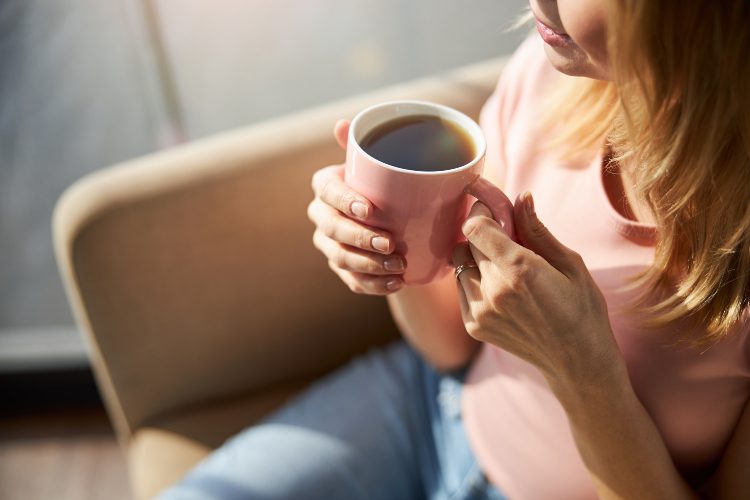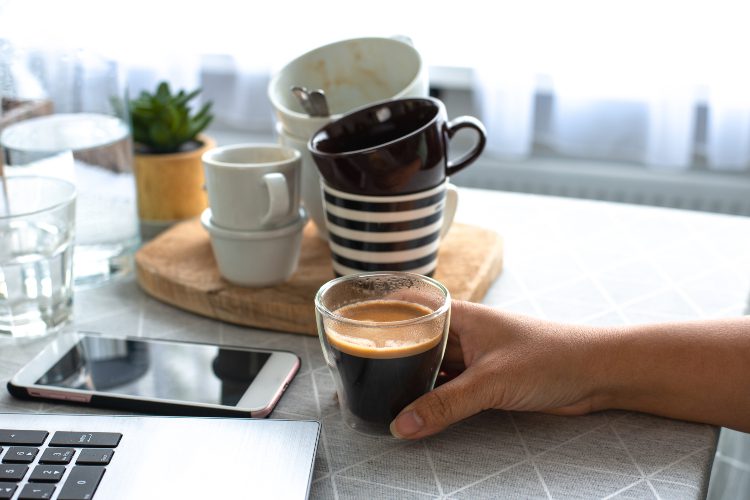
Svitlana Hulko/Shutterstock
Caffeine is one of the most common substances to find in drinks. However, make no mistake: it is a substance that significantly impacts your body! It can seriously affect how you go to sleep at night, in more ways than one...
An Addictive Substance

Monkey Business Images/Shutterstock
We should be clear: there are some definite upsides to caffeine. For instance, it can enhance physical performance, leading many athletes to take it before a workout or game. It can also boost your concentration ability! You see, it blocks the receptors for adenosine, which causes sleepiness. Caffeine also works incredibly quickly, going to work in just 30 minutes after you've had a little. Then, within six to twelve hours, you've flushed it out. However, just because there are some benefits does not mean there are no downsides to drinking caffeine.
The benefits of caffeine kick in even in small or normal doses, somewhere between 60 to 200 mg. However, if you take higher than 250 mg doses of caffeine, your body starts reacting negatively. Higher amounts of caffeine can result in the following results: headaches, increased heart rate, nausea, increased breath rate, nervousness, muscle tremors, among others. Meanwhile, several studies show that the human body can become dependent on caffeine. If you experience signs of withdrawal, like fatigue and headache, when you ditch caffeinated drinks, you're likely dependent.
As you might imagine, this type of dependence can have a dramatic impact on the quality of your sleep...
Caffeine And Sleep

SrideeStudio/Shutterstock
Since caffeine can stop sleepiness, it makes sense that it would impact your sleep schedule. Without getting too technical, caffeine has a half-life of six hours. That means, six hours after drinking that cup of coffee, half of it remains in your system. So, if you have a cup of coffee with 200 mg of caffeine at 5:00 PM, 100 mg of caffeine will remain in your body at 11 PM. That could seriously affect your sleep - and you might not even notice it until the following day! You see, while that little caffeine will allow you to fall asleep, you probably won't enter deeper REM sleep. That's right!
Meanwhile, as stated, caffeine also affects your adenosine levels. Since it blocks the production of adenosine, caffeine can cause you to feel tired later, shifting your whole schedule later. Even worse, the more caffeine affects your sleeping pattern, the less sleep you get, making you more dependent on caffeine. This just creates a vicious cycle.
Need to get off the caffeine train and reset your sleep schedule? Well, while it's not easy, it's doable. Like any drug, you first need to flush your system of all caffeine. Start by taking a few weeks away from caffeinated drinks. Then, slowly start adding them back into your life, without drinking multiple a day. Your body and your dreams will undoubtedly thank you!
Sources: American Sleep Association, Sleep Foundation, Start Sleeping



